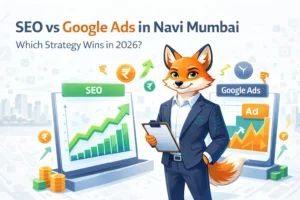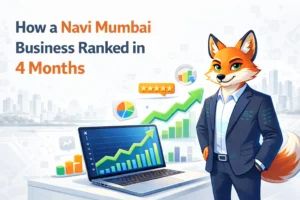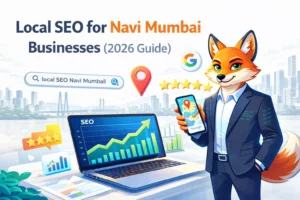Starting a business in India can be a thrilling venture, but it requires careful planning and execution. As a business owner, you need to consider various aspects, from market research to digital marketing strategies, to ensure your venture’s success. In this blog post, we’ll delve into the essential steps to launch a successful business in India, with a focus on digital marketing.
Let’s qickly dive into more details:
Market Research: Understanding Your Target Audience
Before starting your business, it’s crucial to understand your target audience, industry trends, and competitors. Conduct market research to identify:
- Demographics: Age, gender, location, and income level of your target audience
- Pain points: Problems your target audience faces, and how your business can solve them
- Market size: The potential market size and growth opportunities
- Competitors: Identify your competitors, their strengths, and weaknesses
Example: If you’re starting a fitness studio in Mumbai, your target audience might be working professionals between 25-40 years old, looking for a convenient and affordable way to stay fit.
Business Structure: Choosing the Right Entity
Selecting the appropriate business structure is vital for legal and financial purposes. In India, you can choose from:
- Private Limited Company (Pvt. Ltd.)
- Limited Liability Partnership (LLP)
- Sole Proprietorship
- Partnership Firm
Consult with a chartered accountant or lawyer to determine the best structure for your business.
Company Registration: Legalizing Your Business
Register your business with the Ministry of Corporate Affairs (MCA) to obtain a legal entity. You’ll need to:
- Choose a unique name for your business
- Obtain a Director Identification Number (DIN) and Digital Signature Certificate (DSC)
- File incorporation documents with the MCA
Example: If your business name is “FitLife Studios Pvt. Ltd.”, you’ll need to check if the name is available, obtain a DIN and DSC, and file incorporation documents with the MCA.
Digital Marketing Strategy: Reaching Your Target Audience
Develop a digital marketing strategy to create an online presence, attract customers, and build brand awareness. Consider:
- Website development: Create a professional website showcasing your brand, services, and contact information
- Search Engine Optimization (SEO): Improve your website’s search engine rankings to increase visibility
- Social media marketing: Leverage platforms like Facebook, Instagram, and LinkedIn to engage with your target audience
- Content marketing: Create valuable content (blog posts, videos, infographics) to educate and entertain your audience.
Website Development: Your Online Presence
Your website is often the first point of contact between your business and potential customers. Ensure it’s:
- Mobile-friendly and responsive
- Easy to navigate and visually appealing
- Secure (HTTPS) and fast-loading
- Optimized for search engines
Example: FitLife Studios’ website can feature a modern design, easy-to-use interface, and essential pages like “About Us”, “Services”, and “Contact Us”.
SEO Agency: Improving Search Engine Rankings
Partner with an SEO agency to improve your website’s search engine rankings and increase organic traffic. Consider:
- Keyword research: Identify relevant keywords and phrases for your business
- On-page optimization: Optimize website elements like titles, descriptions, and headings
- Link building: Build high-quality backlinks from authoritative sources
Example: FitLife Studios can partner with an SEO agency to improve their search engine rankings for keywords like “fitness studio in Mumbai” and “yoga classes in Mumbai”.
Social Media Marketing: Engaging with Your Audience
Leverage social media platforms to build brand awareness, engage with your audience, and drive website traffic. Consider:
- Content creation: Share valuable content (images, videos, blog posts) on social media platforms
- Paid advertising: Utilize paid social media ads to reach a wider audience
- Engagement: Respond to comments, messages, and reviews on social media
Example: FitLife Studios can create engaging content (workout tips, fitness motivation) and share it on Facebook, Instagram, and LinkedIn to attract and retain customers.
Content Creation: Educating and Entertaining Your Audience
Develop high-quality content to educate and entertain your target audience. Consider:
- Blog posts: Write informative blog posts on topics related to your business
- Videos: Create engaging videos (explainers, tutorials, testimonials) to showcase your services
- Infographics: Design visually appealing infographics to share valuable information
Example: FitLife Studios can create blog posts (“Benefits of Yoga for Working Professionals”), videos (“Fitness Tips for Beginners”), and infographics (“The Importance of Stretching”) to educate and engage their audience.
Digital Marketing Tools: Streamlining Your Marketing Efforts
Utilize digital marketing tools to streamline your marketing efforts, save time, and improve efficiency. Consider:
- Google Analytics: Track website traffic, engagement, and conversion rates
- Hootsuite: Manage social media accounts and schedule posts in advance
- SEMrush: Analyze website performance, track keywords, and identify technical issues
- Mailchimp: Create and send targeted email campaigns to your audience
Example: FitLife Studios can use Google Analytics to track website traffic, Hootsuite to schedule social media posts, and SEMrush to optimize their website for search engines.
Continuous Learning: Staying Up-to-Date with Digital Marketing Trends
The digital marketing landscape is constantly evolving. Stay updated with the latest trends, best practices, and industry developments to stay ahead of the competition. Consider:
- Attend webinars and workshops
- Read industry blogs and books
- Join online communities and forums
- Participate in digital marketing courses and certifications
Example: FitLife Studios can attend webinars on social media marketing, read industry blogs like Moz and HubSpot, and participate in online courses to improve their digital marketing skills.
Conclusion:
Starting a business in India requires careful planning, execution, and a strong digital marketing strategy. By following these 10 key considerations, you’ll be well on your way to launching a successful business that attracts and retains customers. Remember to stay updated with the latest digital marketing trends and best practices to ensure long-term success.
















